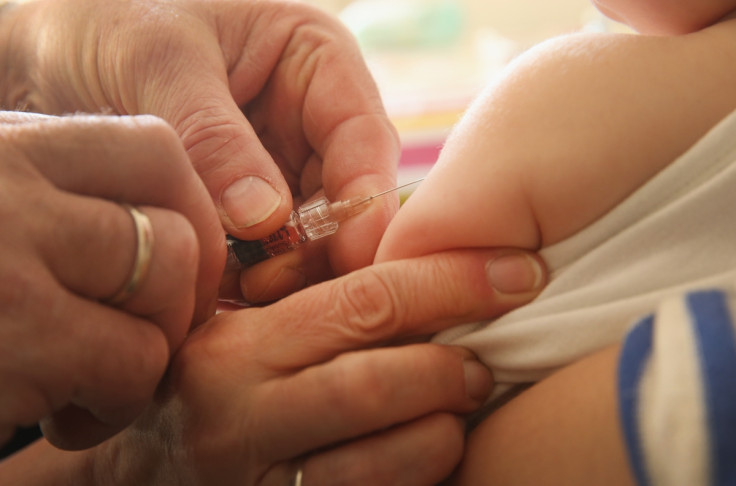HIV vaccine? Scientists improve efficacy of 'best vaccine candidate ever tested'
In another development, the WHO has added PrEP to its list of essential medicines.
A new vaccine candidate has shown promising results in protecting monkeys from SIV – the simian equivalent of HIV.
The team, led by researchers at the University of Duke in the US, has built on previous groundbreaking research conducted in Thailand.
Known as the RV144 clinical trial and led by the the US Military HIV Research Program, this research had come up with the only vaccine candidate ever shown to provide some kind of protection against the virus. It indeed appeared to be 31.2% effective at preventing HIV infection over a 3.5-year testing period.
In a study now published in the journal Nature Communications, scientists have shown that adding new regions of the HIV viral envelope to this vaccine can elicit a broader antibody response.
It could improve the vaccine's efficacy compared with what has been seen in the RV144 clinical trial.
Read more: Why is it so hard to find a vaccine for HIV?
The scientists worked with macaque monkeys infected with SIV - an animal model typically used in the field of HIV research. Using the basis of the vaccine in the RV144 trial, the scientists added three new viral envelope targets to the two that were already there. This elicited additional antibody responses to regions of the HIV envelope and enhanced protection against the virus.
The scientists found that more than half of the vaccinated animals were protected against SIV (55%). These findings suggest that it may be possible to improve the efficacy of the most advanced HIV vaccine candidate to date.
"Vaccine protection using this model of virus infection in primates is possible," said lead author Todd Bradley, a member of the Duke Human Vaccine Institute. "This is a proof of concept that provides a strategy to improve upon the first HIV vaccine regimen that provided limited protection in people."

This is an encouraging study, even though it remains to be seen how applicable the results are to humans.
Laura Waters, Trustee of HIV charity Terrence Higgins Trust, commented: "This animal study demonstrates promising results for a new HIV vaccine formulation. However, even if these results were translated into humans, the degree of protection is still likely to be less than existing highly effective prevention tools, such as pre-exposure prophylaxis (PrEP), effective HIV treatment and condoms. HIV vaccines may form part of a multi-factorial prevention strategy in the future but, realistically, this is not any time soon."
PrEP, an 'essential medicine'
This interesting new vaccine development comes just as the World Health Organisation decided to add HIV-preventing drug PrEP to its Essential Medicines List. This is the organisation's strongest backing yet for the use of PrEP.
PrEP is a preventive treatment which involves people who are at very high risk of HIV infection – such as sexually active gay or bisexual men – taking a combination of HIV medicines sold under the name Truvada on a daily basis.
The treatment works by stopping the virus from taking hold and spreading throughout the body. Robust studies have shown that it works well, preventing people from contracting the virus via sexual or needle-based contact with somebody who is HIV-positive.
If people take the pills everyday as instructed, the method can lower the risk of getting HIV from sex by more than 90% and from injection drug use by more than 70%.
Michael Brady, medical director at the Terrence Higgins Trust said: "The addition of pre-exposure prophylaxis, or PrEP, to the World Health Organisation's Essential Medicines List, is yet further evidence for the need to make this vital HIV prevention tool available to people at risk of HIV here in the UK. By including PrEP in this list, WHO have reinforced the effectiveness of PrEP, and its essential role for global heath needs.
"Adding PrEP to our existing HIV prevention strategies, alongside condoms, treatment and regular testing, means we would have everything we need to bring an end to HIV transmission in the UK; where currently 17 people are newly diagnosed with HIV every day."
© Copyright IBTimes 2025. All rights reserved.






















